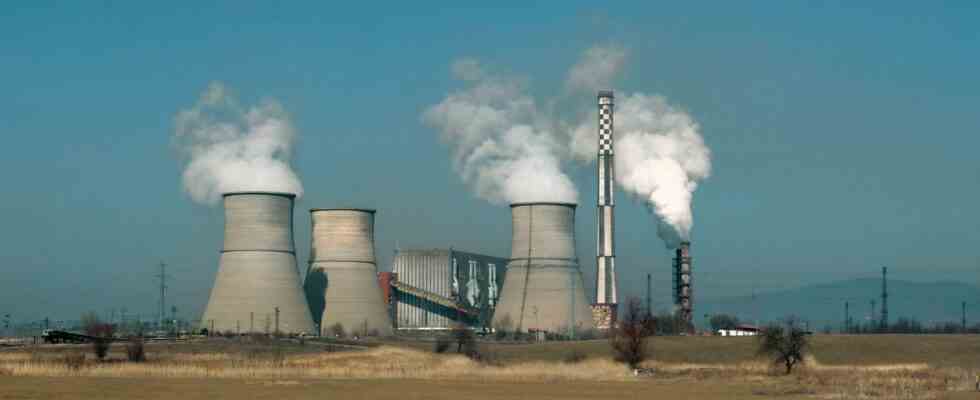Status: 01/12/2023 5:40 p.m
Bulgaria’s parliament wants to keep the country’s coal-fired power plants in operation for longer: a majority voted in favor of phasing out twelve years later. However, this runs counter to the EU recovery plan.
Bulgaria wants to postpone the planned closure of its coal-fired power plants by around twelve years until 2038. The parliament in Sofia instructed the government to negotiate with the EU Commission about withdrawing the corresponding obligation.
The decision in favor of the coal-fired power plants passed with an overwhelming majority of 187 votes in favor, with only two votes against and nine abstentions.
EU wants CO2 reduction by 40 percent
Previously, employees of coal-fired power plants and coal mines had demonstrated in parliament to postpone the closure of their plants until 2038. They complained that the implementation of the previous goals would endanger energy security and many jobs.
However, the parliamentary decision runs counter to the country’s EU recovery plan. It stipulates that carbon dioxide emissions in the energy industry should be reduced by 40 percent by the end of 2025 compared to 2019, which is expected to be equivalent to a coal phase-out in 2026. The parliamentarians still want to postpone the exit, even if the EU could cut aid.
Industry considers targets unrealistic
According to industry sources, Bulgaria’s coal-fired power plants generate half of the country’s total electricity needs in the summer months. During the heating season it is almost 60 percent. Most of them have already started implementing projects to diversify the fuel mix and phase out coal.
But this cannot be fully achieved within three years, according to an open letter from the industry to the state and parliamentary leadership from November 2022. Bulgaria is the largest electricity exporter in Southeast Europe. The income of the primarily state-owned producers is primarily used to protect companies and consumers from rising energy costs.
Greenpeace warnings
The environmental organization Greenpeace had repeatedly urged the Bulgarian government to focus on renewable energies and create new jobs in the coalfields. The greenhouse gases such as CO2 released when gas, oil and coal are burned are the main reason for global warming and its fatal consequences, i.e. more and more droughts, heat waves, hurricanes, floods and sea level rise.

